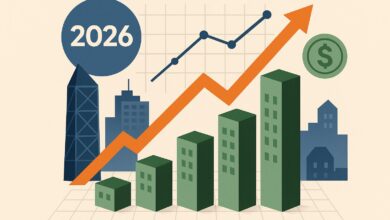The Novel And Important Differences Between Traders and Investors

The world’s financial markets are home to many different market participants. Some are facilitators, some act as principals. Some are professionals, conducting business on behalf of their employer, while millions more are amateur ‘retail’ clients who make transactions from the comfort of their own homes.
But the most meaningful distinction between financial market participants is between investors and traders.
The terms ‘investor’ and ‘trader’ are often confused because investing and trading are generally conflated by national media when referring to those who buy and sell stocks & shares. In this article, we’ll explain the definitions of each term and detail the critical differences between these actors.
It’s an important distinction because investors need to understand that resources, research and tools designed for traders, not investors, are not really targeted at, or suitable for them.
Comparing the dictionary definitions of investor and trader

The Cambridge Dictionary defines an investor as “a person who puts money into something in order to make a profit or get an advantage”.
It goes on to define a trader as “a person who buys and sells company shares or money”.
You may have noticed the subtle absence of the word ‘sell’ or ‘withdraw’ from the investor definition. Although it is clearly factually incorrect to assume that an investor only puts money in (implying they never withdraw), the definition describes only a one-way transaction. Divesting is the proper term for extracting money from investment via a sale. However, people who are selling out of an investment are not called ‘divestors’.
Despite the complementary definitions of invest and divest, it would be incorrect to assume that a combination of the words ‘invest’ + ‘divest’ have the same meaning as ‘trade’.
The fact that investing is a one-way word has significant weight when we discuss the general consensus and usage of these words later in this article.
The dictionary suggestions for use are also revealing. For investors, the Cambridge dictionary suggests ‘small investors’ and ‘institutional investors’. For trader, it suggests ‘a stock/currency/futures trader’ or ‘He is a well-known trader on the floor of the New York Stock Exchange.’
The subtle difference between these examples as that only the investor definition refers to retail clients, i.e. individuals transacting as an individual. Currency & futures traders tend to work at the trading desks of investment and merchant banks.
How the words ‘trader’ and ‘investor’ are used within the industry

The words ‘trader’ and ‘investor’ conjure up very different images within the wealth management or banking industry.
An investor is a long term market participant who uses their own cash to take a long position and invests for income or capital appreciation. An investor could be a private individual or an institution (usually investing on behalf of their individual clients).
A trader is a short-term speculator who takes long or short positions on a variety of financial instruments to return a capital gain. A trader is highly likely to take multiple positions a day, generate high fees for their broker and will often be professional.
The needs of investors and traders are subsequently quite different and they are catered to completely different.
Investors look for reputable brokers who will be responsible custodians of their wealth. They will seek out providers who charge the lowest account fees in an attempt to hold onto as much of the financial returns generated as possible.
Investors who don’t want to hold individual company shares will be attracted to the wide selection of collective investment schemes such as closed-ended investment companies, investment trusts, exchange-traded funds and unit trusts. These investment vehicles provide access to a diversified portfolio of assets with a single transaction.
On the other hand, traders look for brokers who can offer fast execution times, free (or reasonably priced) charting software and news wire feeds. Brokers trade frequently, which leads to trading commissions being their largest expense over a given period. Therefore when shopping around for providers, brokers may prioritise trading fees over other aspects (such as the age of the brokerage firm).
Simon Oates from the UK investing blog financial-expert.co.uk, explains to us why traders tend to eschew the most well-known brokers when choosing their trading partner:
“Traders understand that profits are driven by cold, hard math. Often, the cost-benefit analysis doesn’t land in favour of the old guard. Choosing a more expensive but highly trusted UK broker does not always outweigh the savings from choosing a regulated broker which isn’t a household name. When actively trading, just a small percentage difference in fees can make the difference between closing a trade at a profit of a loss, so traders are naturally very price-sensitive when it comes to transaction costs.”
Are you an investor or a trader?

When asking yourself this important question, consider your answers to the following questions:
- Are you investing for several years?
- Do you expect your investments to produce a financial return passively?
- Are you putting money into investments for a specific goal, such as a house deposit or retirement?
If you have answered ‘yes’ to these three questions then it’s likely that you are an investor and not a trader.
In possession of this knowledge, how should this affect the way you research the topic of investing online?
- You should ignore ‘hot tips’ and trading forums
- You should not attempt to change your investments on the fly based on current affairs
- You should not invest with borrowed money
The first two points allude to the ability of successful investors to ‘rise above the noise’ of day-to-day news and events, and stick to a consistent investment plan over the long term. Investors who get sucked into buying or selling on the basis of share price or market movements are accidentally being pulled into a ‘trading’ methodology which will incur fees and erode returns.
The third point is a risk-management tip that all investors should heed. The stock market is a risky investment, but investing with borrowed money exacerbates this risk even further. When investing with a lump sum borrowed from external sources, the profit or loss on this investment will be much higher as a proportion to the small element of the stake which is your own money.
For example, if you buy shares on leverage such that you are investing £50 of your own money and £450 of borrowed funds, then your total asset would be worth £500. It would only take a 10% negative movement for your total losses to exceed your own personal equity.
It may initially appear to be a no-brainer that if you can borrow money at a lower interest rate than the expected return of the stock market, that this will be a profitable trade. But this is not necessarily the case. Consider that interest will be added to a loan without a doubt in each period, whereas the potential returns of the stock market are just that – potential.
It’s always worth exercising great caution and performing too much research before investing for the first time. You’ll want to avoid confusing the terms investor and trader and getting wrapped up in an investing approach that doesn’t align with your personal financial objectives.




